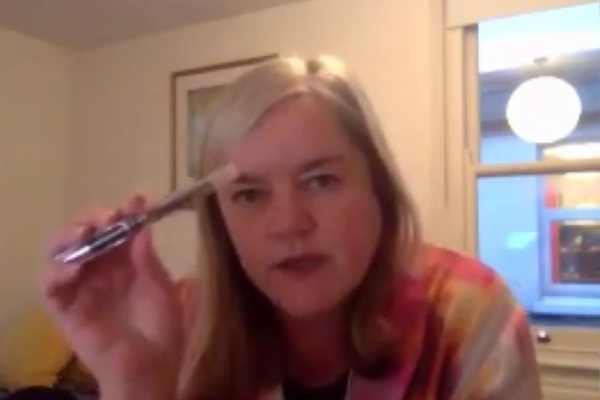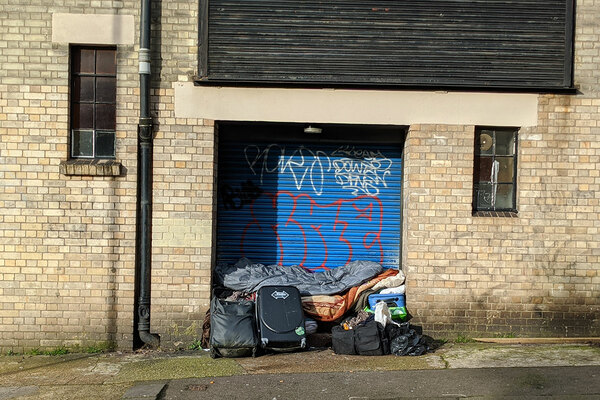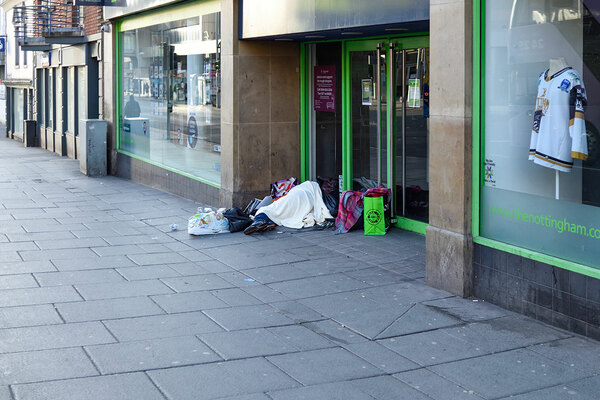You are viewing 1 of your 1 free articles

We want to use data to find and share the best ways to tackle our homelessness crisis
Our new project aims to explore ways to deal with the country’s homelessness crisis. We want any local authority that has a homelessness challenge to get involved, writes Dr Lígia Teixeira
The growing impact of COVID-19, in addition to shrinking budgets and increasing homelessness in many areas, has meant that for many local authorities, their strategies for long-term homelessness reduction and prevention have taken a back seat as they’ve had to devote resources to emergency and reactive services.
To help local areas maintain their efforts to end homelessness for good, the Centre for Homelessness Impact has created the What Works Community: Local Government initiative.
This resource is intended to help local authorities step out of their daily routine and explore how the use of evidence and data could improve their operations. We’re one of nine What Works centres, along with the National Institute for Health and Care Excellence and the Early Intervention Foundation.
The What Works Community is an incubator that encourages and grows ideas that haven’t yet had the opportunity or the resources to take shape.
We want to give local authorities access to our own experts as well as partners such as John Hopkins University, the Behavioural Insights Team and IDEO, and create a forum where there are no bad ideas, where people can workshop with their peers and have the support to develop innovative ideas which have robust evidence at their core.
Last week, the members of our new cohort took their places on the programme. We are excited about the opportunity this presents, not only for those participating but for the sector as a whole.
We know excellence can only truly be best practice if it is shared, so we want to create solutions that can be made available to local authorities across the UK and beyond.
We want everybody to be able to harness the power of data, evidence and experimentation to build solutions for their local area that truly work and make limited resources go further.
On our 2019 pilot programme we worked with three local authorities. We’ve scaled up for 2021, and we’re working with more than 20 across the UK.
“We want everybody to be able to harness the power of data, evidence and experimentation to build solutions for their local area that truly work and make limited resources go further”
The cohort is incredibly varied, including cities such as Cambridge, Manchester and Aberdeen; rural areas like Shropshire and Wychavon and Malvern Hills; and the London Boroughs of Greenwich, Southwark and Enfield.
We know each local authority is as unique as the people they serve, and we value the perspective that each of them will bring to the community.
Although things look markedly different for 2021 – we’re meeting over a screen rather than across a table – going digital means every local authority that wants support can get it, with no geographical barriers and no cost implications.
Throughout the programme we will work with the participating local authorities to co-develop material to inform open-access tools and pioneer a new way of collaborative, data-driven working that has people with lived experience of homelessness at its heart.
We will work with our participants to encourage a learning culture at scale and build a community that learns from each other. We will nurture ideas from that community and build locally designed trials that everyone will benefit from.
We know that for many local authorities, reducing the use of temporary accommodation when dealing with local homelessness issues is a priority that has only been exacerbated by the pandemic.
To help them address this, we have created an evidence accelerator arm of the What Works Community, and five of the participating authorities – Hull, Scarborough, Greenwich, Aberdeen and Rochdale – will embark on an intensive challenge to tackle the use of temporary accommodation.
At the end of the accelerator journey, each local authority will have developed an intervention, tailored to their specific circumstances, which can be trialled in their area.
“As well as providing tools and resources, the sector will see a long-term benefit from the growing army of evidence champions the community is creating”
Along the way, participating teams will hone their skills in collaboration, communication, working across silos and leadership – skills that are not only of benefit to the project, but also to the local authority as a whole.
Perhaps most importantly, the What Works Community won’t simply be a forum for local authorities to learn from us and our partners. It is crucial that we at the Centre for Homelessness Impact take time to reflect and learn from the local authorities, and build what we learn into our work.
2021 is set to bring even more unimaginable challenges and we hope that, through the What Works Community, we’ll be able to help local leaders build a response that is rooted in evidence and data.
As well as providing tools and resources, the sector will see a long-term benefit from the growing army of evidence champions the community is creating. We invite any local authority that has a homelessness challenge to get in touch to find out how to get involved.
Dr Lígia Teixeira, chief executive, Centre for Homelessness Impact
Sign up for our homelessness bulletin
Already have an account? Click here to manage your newsletters














